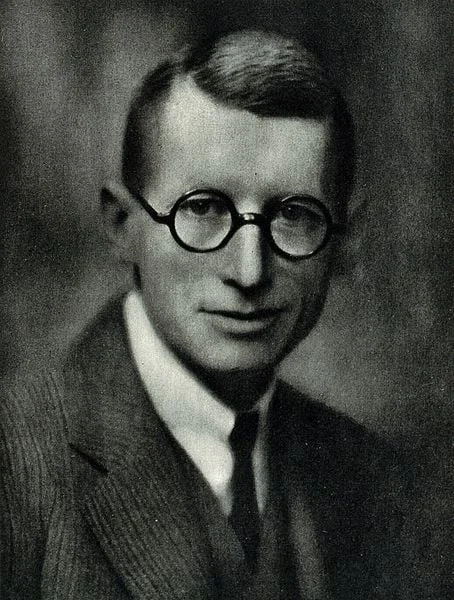Real Celebrities Never Die!
OR
Search For Past Celebrities Whose Birthday You Share

source:wikipedia.org
Davidson Black
Birthday:
25 Jul, 1884
Date of Death:
15 Mar, 1934
Cause of death:
Heart failure
Nationality:
Canadian
Famous As:
Paleoanthropologist
Age at the time of death:
49
Davidson Black's Quote's
Early Life and Education
Davidson Black, a renowned Canadian paleoanthropologist, was born on July 25, 1884, in Toronto, Canada. From an early age, Black exhibited a keen interest in the natural world, fostering a curiosity that would shape his future endeavors. He pursued his academic journey at the University of Toronto, where he excelled in anatomy and anthropology. His academic prowess earned him a scholarship to further his studies abroad.
Journey into Paleoanthropology
Black’s journey in paleoanthropology truly began when he pursued a medical degree at the University of Chicago. His passion for human anatomy and evolution led him to delve into the study of fossil hominids. In 1921, he made a groundbreaking discovery in Zhoukoudian, China, unearthing a fossilized tooth that would later be attributed to the species Homo erectus.
Discovery of Peking Man Fossils
This discovery catapulted Black into the limelight of the scientific community, marking the beginning of his influential career. Recognizing the significance of his findings, Black continued his excavations at Zhoukoudian, leading to the unearthing of the Peking Man fossils. These fossils provided crucial insights into human evolution, solidifying Black’s reputation as a pioneer in the field.
Academic and Professional Contributions
Black’s contributions to paleoanthropology were not limited to fieldwork. He held various prestigious positions, including Professor of Anatomy at Peking Union Medical College and later as Chair of the Department of Anthropology at the University of Toronto. His leadership and dedication to the field played a pivotal role in advancing the study of human evolution.
Challenges and Perseverance
Despite facing challenges, including political unrest in China during the 1920s and 1930s, Black persevered in his research. He worked tirelessly to establish the Cenozoic Research Laboratory in Beijing, a testament to his commitment to advancing scientific knowledge.
Personal Life
While Davidson Black was devoted to his scientific pursuits, he also had a rich personal life. He married Adena Nevitt in 1913, and the couple had two children. Despite the demands of his career, Black maintained a balance between his family life and his passion for anthropology.
Legacy and Impact
Davidson Black’s legacy extends far beyond his groundbreaking discoveries. His meticulous research laid the foundation for subsequent generations of paleoanthropologists. The Peking Man fossils, carefully studied and documented by Black, remain invaluable to our understanding of human evolution.
Tragic Death and Lasting Influence
Tragically, Davidson Black’s life was cut short when he passed away on March 15, 1934, at the age of 49. His untimely death left a void in the field of paleoanthropology, but his contributions continue to reverberate through the halls of academia. The Davidson Black Award, established in his honor, serves as a testament to his enduring impact on the discipline.
Conclusion
In conclusion, Davidson Black’s life was a tapestry woven with intellectual curiosity, groundbreaking discoveries, and a commitment to advancing human knowledge. His legacy lives on not only in the fossils he unearthed but also in the inspiration he provided to future generations of scientists exploring the mysteries of our shared evolutionary history.
Name:
Davidson Black
Popular Name:
Davidson Black
Gender:
Male
Cause of Death:
Heart failure
Spouse:
Place of Birth:
Toronto, Ontario, Canada
Place of Death:
Beijing, China
Occupation / Profession:
Personality Type
Advocate: Quiet and mystical, yet very inspiring and tireless idealists. His strong interest in human anatomy and evolution led him to China, which led to the discovery of the Peking man fossil inspite of all the hardships he faced.
Black kept a fossilized tooth of Peking Man in a specially made capsule that he carried with him to promote scientific acceptance of his discovery.
During World War I, Davidson Black served in the Canadian Army Medical Corps.
He discovered and named Sinanthropus pekinensis (now known as Homo erectus pekinensis), popularly called "Peking Man", based on a single tooth found in China.
The fossil discoveries at Zhoukoudian, including the famous Peking Man fossils, were not without challenges. Black faced difficulties, including political unrest and interruptions in funding, but his determination and resilience played a crucial role in the success of the excavations.
Unlike many foreigners in China at the time, Black respected his Chinese colleagues, treated them as equals, and involved them in decision-making.
Honorary Doctorate from the University of Chicago
